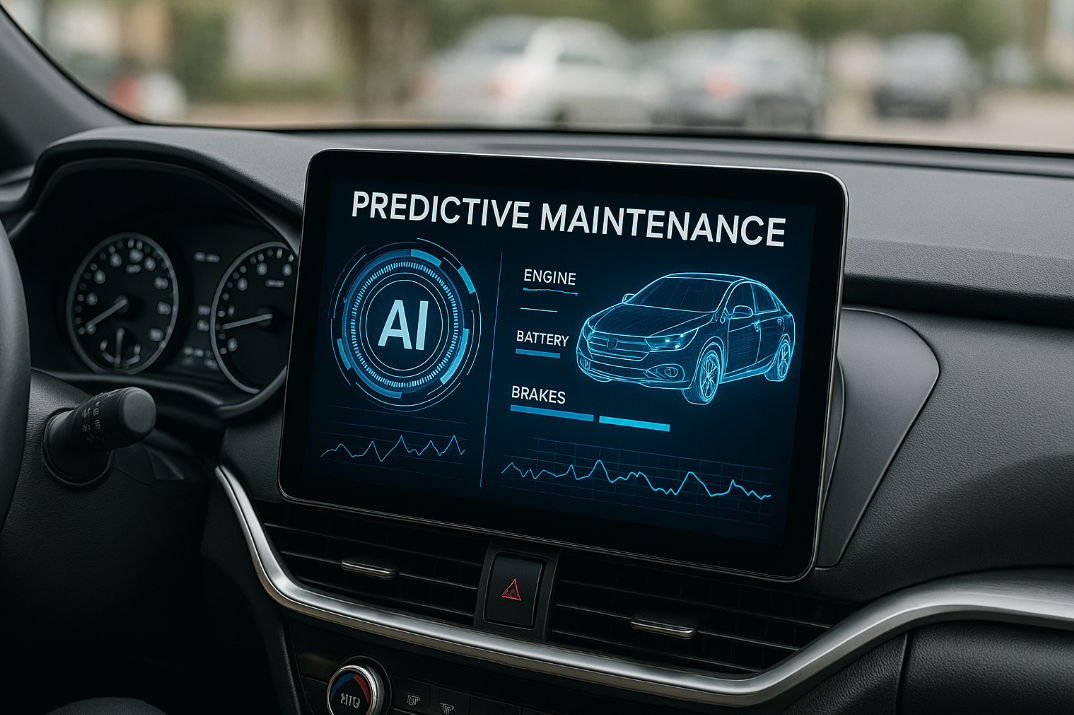The automotive industry is undergoing a transformative shift, with artificial intelligence (AI) at the forefront of innovation. One of the most significant advancements is the integration of AI-powered predictive maintenance systems in vehicles. These systems analyze real-time data to anticipate potential issues before they become serious problems, enhancing vehicle reliability and reducing maintenance costs. This article explores the development, functionality, and benefits of AI-driven predictive maintenance in modern automobiles.
Understanding Predictive Maintenance
Predictive maintenance involves monitoring the condition of a vehicle’s components to predict when maintenance should be performed. Unlike traditional maintenance schedules based on mileage or time intervals, predictive maintenance relies on data analysis to determine the optimal timing for servicing parts. This approach minimizes unnecessary maintenance and prevents unexpected failures.
The Role of AI in Predictive Maintenance
AI enhances predictive maintenance by processing vast amounts of data collected from various sensors embedded in the vehicle. These sensors monitor parameters such as engine temperature, vibration, oil quality, and brake wear. AI algorithms analyze this data to identify patterns and anomalies that may indicate impending component failures.
For instance, Porsche has developed an AI system that transmits diagnostic data from the vehicle to the cloud, where it is analyzed for anomalies. If a potential issue is detected, the driver receives an alert via an app, advising them to visit a service center. This proactive approach allows for timely interventions, potentially saving motorists significant repair costs .
Benefits of AI-Powered Predictive Maintenance
Enhanced Vehicle Reliability
By identifying potential issues before they lead to breakdowns, predictive maintenance ensures that vehicles remain in optimal operating condition. This reliability is particularly crucial for commercial fleets, where unexpected downtime can result in substantial financial losses.
Cost Savings
Preventing major repairs through early detection of issues can lead to significant cost savings for vehicle owners. Addressing minor problems before they escalate reduces the likelihood of expensive component replacements and labor-intensive repairs.
Improved Safety
Predictive maintenance contributes to vehicle safety by ensuring that critical systems, such as brakes and steering, are functioning correctly. Early detection of faults in these systems allows for prompt repairs, reducing the risk of accidents caused by mechanical failures.
Environmental Benefits
Well-maintained vehicles operate more efficiently, consuming less fuel and emitting fewer pollutants. Predictive maintenance helps maintain optimal engine performance, contributing to environmental sustainability.
Implementation Challenges
Despite its advantages, implementing AI-powered predictive maintenance presents certain challenges:
- Data Privacy and Security: The collection and transmission of vehicle data raise concerns about privacy and data security. Manufacturers must ensure that data is protected against unauthorized access and breaches.
- Integration with Existing Systems: Incorporating AI systems into existing vehicle architectures requires careful planning to ensure compatibility and functionality.
- Cost of Implementation: Developing and deploying AI predictive maintenance systems involve significant investment in technology and infrastructure, which may be a barrier for some manufacturers.
Future Outlook
The adoption of AI-powered predictive maintenance is expected to grow as technology advances and costs decrease. Integration with other emerging technologies, such as the Internet of Things (IoT) and 5G connectivity, will enhance data collection and analysis capabilities. Additionally, as electric vehicles become more prevalent, predictive maintenance will play a vital role in monitoring battery health and other critical components.
Conclusion
AI-powered predictive maintenance represents a significant advancement in automotive technology, offering numerous benefits in terms of reliability, cost savings, safety, and environmental impact. As the industry continues to evolve, embracing these intelligent systems will be essential for manufacturers and consumers seeking to optimize vehicle performance and longevity.


